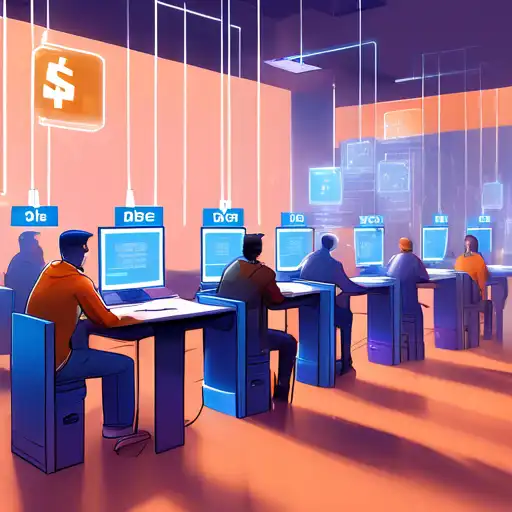Introduction to Blockchain in Voting
In the digital age, the integrity of voting systems is more important than ever. Blockchain technology, known for its security and transparency, is emerging as a revolutionary tool in the realm of secure voting. This article explores the pivotal role blockchain plays in enhancing the security, transparency, and efficiency of voting systems worldwide.
Understanding Blockchain Technology
Before delving into its application in voting, it's essential to understand what blockchain is. At its core, blockchain is a decentralized ledger that records transactions across many computers so that the record cannot be altered retroactively. This feature makes it an ideal candidate for secure voting systems.
The Benefits of Blockchain for Voting
Blockchain technology offers numerous benefits for voting systems, including:
- Enhanced Security: The decentralized nature of blockchain makes it nearly impossible to hack, ensuring the integrity of each vote.
- Transparency: Every transaction on the blockchain is visible to all participants, making the voting process transparent and verifiable.
- Reduced Fraud: With blockchain, each vote is encrypted and linked to a unique identity, significantly reducing the risk of fraud.
- Accessibility: Blockchain can enable remote voting, making it easier for people to participate in elections from anywhere in the world.
Real-World Applications
Several countries and organizations have begun experimenting with blockchain-based voting systems. For example, Estonia has implemented a blockchain system for online voting, showcasing the potential for secure and efficient elections. Similarly, private organizations are using blockchain for shareholder voting, demonstrating its versatility.
Challenges and Considerations
Despite its potential, the adoption of blockchain in voting is not without challenges. Issues such as digital divide, scalability, and regulatory hurdles must be addressed to fully realize its benefits. However, with ongoing advancements, blockchain is poised to play a significant role in the future of secure voting.
Conclusion
Blockchain technology holds the promise of transforming voting systems into more secure, transparent, and accessible platforms. As the world moves towards digital solutions, the integration of blockchain in voting could be a game-changer for democracies around the globe. The journey is just beginning, and the potential is limitless.
For more insights into the future of technology in governance, explore our technology trends section.
